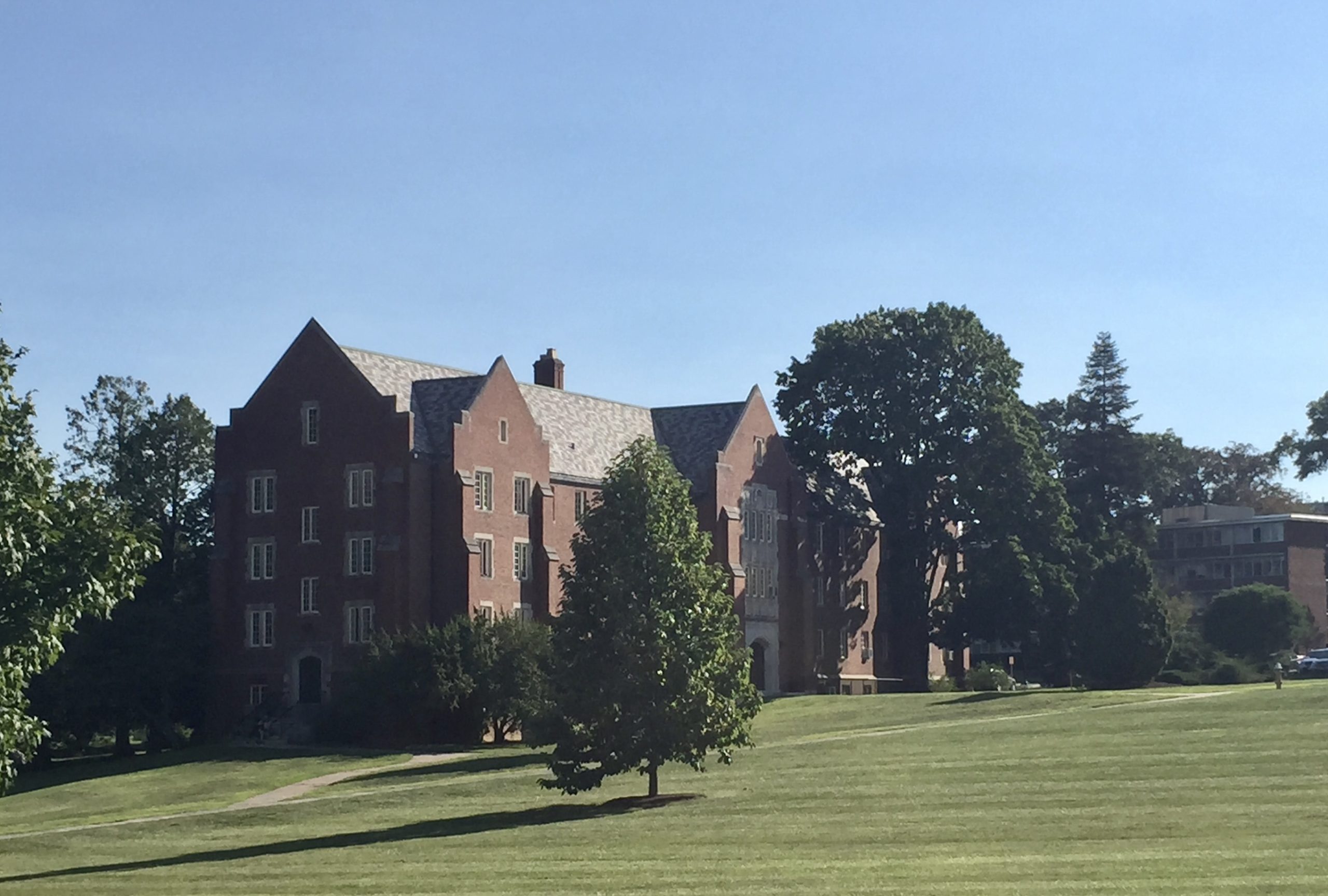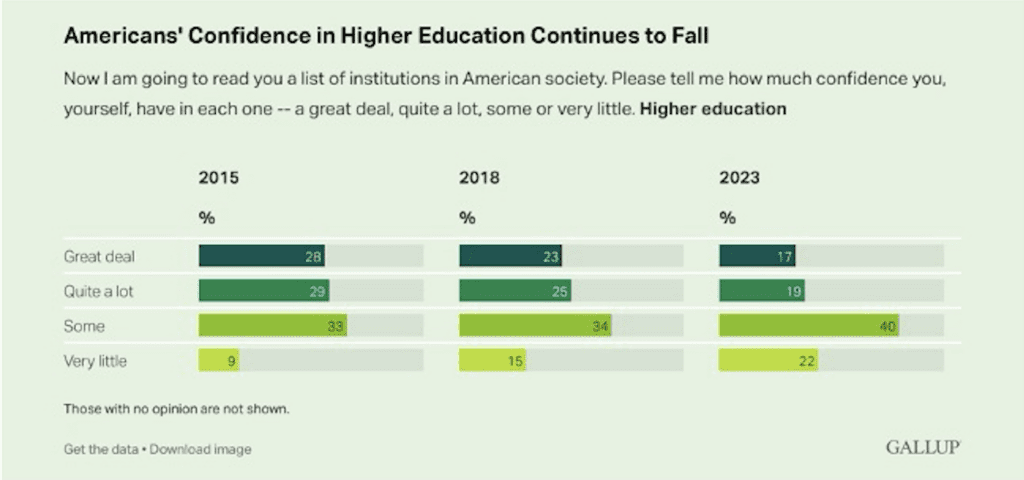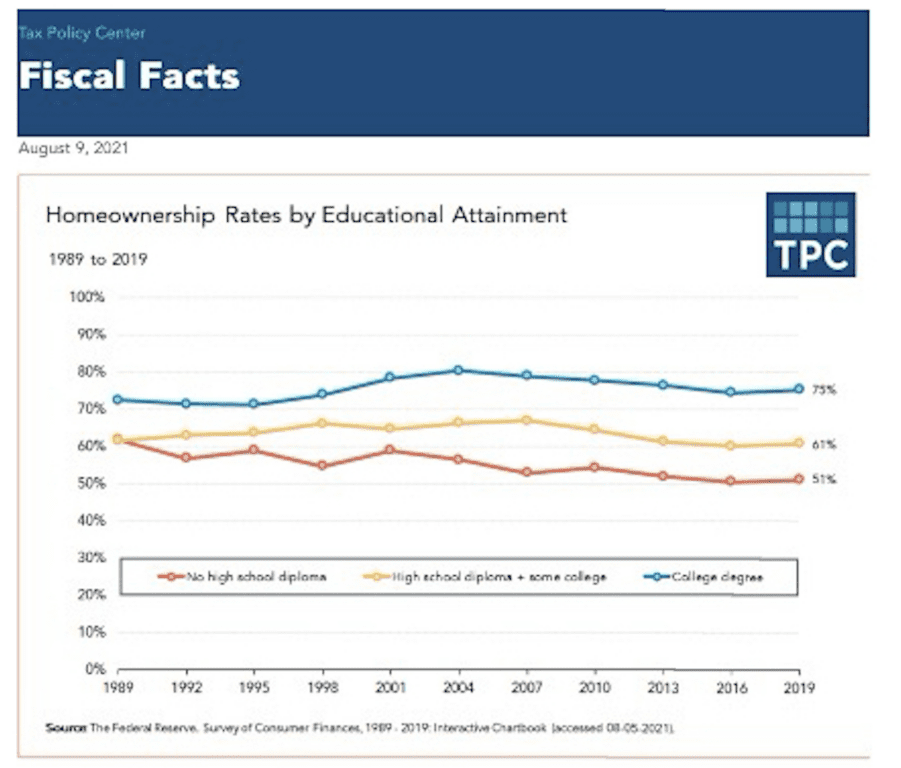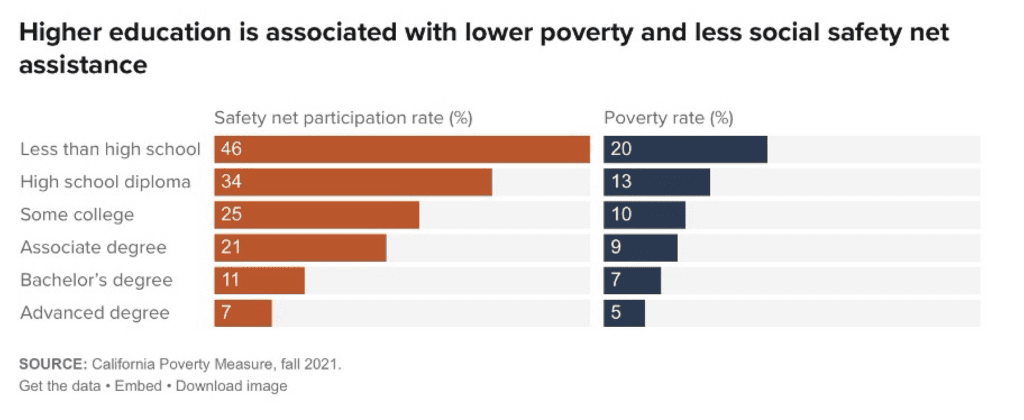College Bound: The Worth and Value of a College Education

Audio By Carbonatix

Photo credit: Ronni Newton (we-ha.com file photo)
We-Ha.com will be publishing a series of essays/blogs/reflections on the issue of going to college – primarily a set of thoughts and musings, along with some practical advice, intended to support students and parents as they embark on this journey. While many of our readers are experts in this topic, many others are less knowledgeable and have little outside support. We hope this is helpful to all readers as they go through the various stages of getting into and getting something out of college.
By Adrienne Leinwand Maslin
Over the past several years I have spoken with students and parents, and have read numerous articles, all questioning the worth of a college education. They cite the expense. They cite the benefits of pursuing a trade. They question the value of the liberal arts which make up a sizable portion of the degree requirements at most institutions of higher learning. But how do you judge the value or worth of a college education?
According to Paul Tough, a contributing writer for the New York Times Magazine and author of The Inequality Machine: How College Divides Us, among other books:
“In the fall of 2009, 70 percent of that year’s crop of high school graduates did in fact go straight to college. That was the highest percentage ever, and the collegegoing rate stayed near that elevated level for the next few years. The motivation of these students was largely financial. The 2008 recession devastated many of the industries that for decades provided good jobs for less- educated workers, and a college degree had become a particularly valuable commodity in the American labor market. The typical American with a bachelor’s degree (and no further credential) was earning about two-thirds more than the typical high school grad, a financial advantage about twice as large as the one a college degree produced a generation earlier. College seemed like a reliable runway to a life of comfort and affluence.”
However, 10 years on, and the favorable opinions held by so many Americans’ towards higher education and the earning of a college degree have declined sharply. Unlike a decade ago, nearly half of parents today express a preference that their children not attend a four-year college straight out of high school. Of these parents, 16% preferred non-college vocational training for their children and 22% hoped their children would consider such options as joining the military or getting a job. Even community colleges were seen as an attractive alternative to four-year institutions by only 8% of the American parents surveyed.
According to Forbes, Gen Z students, those born from 1997-2012, are “shaking up the established education-to-career pathways system, with college enrollments down and young learners skeptical of the cost-versus-benefit of a four-year degree.”
A recent Gallup poll, taken from June 1-22, 2023, that asks how much confidence the respondent has in higher education shows that the level of confidence has dropped from 2015 to 2023.

Courtesy image
In a 2021 article Richard V. Reeves, author of “Of Boys and Men,” and Ember Smith, former research analyst for the Center on Children and Families in Economic Studies, note that the decline in college enrollment has been driven primarily by men. In fact, according to the National Student Clearinghouse, male students make up only 41% of the college population which is an all-time low.
Why is this happening? Many parents and students are looking at the price tag of a four-year college degree, something that has steadily increased for many years. And although data still indicate that future earnings will exceed the cost of college, it is difficult for many parents and students to justify the large expenditure, usually entailing taking out a loan, when future earnings are uncertain and frequently depend on the major a student has chosen, involves loan repayment with interest, and the earnings potential is far in the future.
Other concerns have to do with how parents and students view the job market. Many believe that college is no longer the door through which someone can enter the middle class and feel that entering a skilled trade holds much more promise. They see trades such as aircraft technician, plumber, wind turbine technician, and HVAC technician as being more financially sound and as trades where jobs are plentiful.
In more recent years, colleges have come to be increasingly perceived as bastions of liberalism, where more conservative students feel alone and unsupported. Others see higher education, due to such things as Operation Varsity Blues (see my we-ha.com column of January 2, 2022) and legacy admissions (see my we-ha.com column of Jan. 2, 2022), as something that only supports and benefits the wealthy. These factors, too, have soured many parents and students on higher education. And while Republicans’ views of higher education have declined precipitously, particularly since 2015, the opinions of many Democrats have also declined, largely because they see higher education as too expensive.
The “college wage premium” is a term that refers to the income boost one can expect over the course of one’s lifetime by earning a bachelor’s degree. Right now, the college wage premium is around 65%. That is, a person with a bachelor’s degree can expect to earn 65% more in income over their lifetime than a person without the degree. However, several economists are now looking at what is called the “college wealth premium.” The college wealth premium takes into account the debt a college grad has taken on. When viewed in this perspective, the difference in lifelong income of someone with a bachelor’s degree and someone without is vastly reduced. This is the reason so many people are questioning the worth of college from a financial standpoint.
Despite all this, I still believe higher education to be of significant value and worth. According to Anthony P. Carnevale, research professor and director of Georgetown University’s Center on Education and the Workforce, Tamara Jayasundera, and Artem Gulish, graduate degree holders gained 3.8 million jobs, bachelor’s degree holders gained 4.7 million jobs, and associate’s degree holders gained 3.1 million jobs, compared to workers with a high school diploma or less, who added only 80,000 jobs in the years following the Great Recession of 2008. (Source: Georgetown University Center on Education and the Workforce, America’s Divided Recovery: College Haves and Have-Nots. 2016)
In a letter of March 21, 2021, reflecting on one year of the pandemic, Carnevale, said that:
While our research has revealed who is bearing the brunt of the economic devastation, it has also highlighted the advantages that educated workers have in the economy. Workers with postsecondary education have been more likely to telework, and they have been more insulated from the effects of the downturn, as they were during the Great Recession. By January, the unemployment rate was 9 percent for those without education beyond high school, compared to 4 percent for those with at least a bachelor’s degree.
Similarly, of the 171 million jobs economists estimate the U.S. economy will have in 2031, only 30% will be available for people without a college degree.
Again, quoting Paul Tough:
“The reality, though, is that in the decade ahead, opportunities for those without a postsecondary credential are projected to shrink even further. It is true that there are still some well-paying jobs that don’t require a degree – plumbers make a median of almost $60,000 a year, according to the Bureau of Labor Statistics – but the B.L.S. predicts that fewer than 10,000 new plumbing jobs will be created in the United States between now and 2031. The fastest-growing jobs available to those with only a high school diploma, meanwhile, are mostly low-wage service jobs: home health aides (924,000 new jobs by 2031), food-service workers and waiters (570,000 new jobs), restaurant cooks (419,000 new jobs) and warehouse workers (358,000 new jobs). None of these jobs have a median salary above $31,000 a year.”
A table from the Occupational Outlook Handbook, a publication of the U.S. Bureau of Labor Statistics, can be accessed here.
Further, Tough goes on to say that there could be a potential loss of 8.5 million bachelor’s degree holders in this country if students choose not to attend a four-year college. The nature of our economy is such that the available jobs will have to be filled by an educated workforce – i.e. someone with at least a bachelor’s degree. The loss of millions of bachelor’s degree holders will mean a less robust economy.
Douglas Holtz- Eakin, an American economist and a Senior Staff Economist on President George H.W. Bush’s Council of Economic Advisers, and Tom Lee, Data and Policy Analyst at the American Action Forum, “calculated the price to the American economy of the millions of missing college grads they are projecting: $1.2 trillion in lost economic output by the end of the decade.”
If we consider only such things as the college wage premium, college wealth premium, greater job security during difficult economic times, and the outlook for jobs without a college degree it becomes apparent, at least to me, that college is still “worth it.” Let’s take a look at other aspects of earning a bachelor’s degree.
All things being equal, someone with a bachelor’s degree will be better educated than someone without the degree. People who attend college experience a great deal of personal growth because of their attendance at college. You meet new people of different cultures and backgrounds which is interesting in and of itself but it also helps you reflect on who you are and what kind of person you want to become. In college you learn not only information related to your major, but you will learn soft skills such as communication, teamwork, and problem-solving. And education is something that no one can ever take from you.
Bachelor’s degree holders are more likely to be homeowners than people who do not hold a bachelor’s degree. According to the Public Policy Institute of California, “In addition to having higher earnings and better job benefits, college graduates are more likely to own a home and less likely to be in poverty or need social services. Society as a whole is also better off, thanks to lower unemployment, less demand for public assistance programs, lower incarceration rates, higher tax revenue, and greater civic engagement.”

Courtesy image
Finally, there’s the issue of marriage, from both a personal and societal perspective. If you’re male, and you want to marry, you have a better chance of doing so if you have at least a bachelor’s degree. In spring 2021, 18-24 year old men made up only 40.5% of all undergraduate enrollment (both two-year and four-year). Given the ratio of men to women in college, a male with a bachelor’s degree will be quite appealing in the eyes of many women. Research indicates that many women would prefer to remain single than to marry a man with less education. From a societal perspective, if marriage rates decline, there are implications for home-ownership and population growth. While norms have changed significantly over the years, it is still the case that married couples are more likely to have children and to purchase a home.

Courtesy image
So, if we are going to judge higher education based on worth and value, for me it’s an easy win-win.
Adrienne Leinwand Maslin recently retired from a 45-year career in higher education administration. She has worked at public and private institutions, urban and rural, large and small, and two-year and four-year, and is Dean Emerita at Middlesex Community College. She has held positions in admissions, affirmative action, president’s office, human resources, academic affairs, and student affairs. Maslin has a BA from the University of Vermont, an MEd from Boston University, and a PhD from the University of Oregon. She is presently creating a TV/web-based series on life skills and social issues for 9-12 year olds believing that the more familiar youngsters are with important social issues the easier their transition to college and adulthood will be. Information about this series as well as contact information can be found at www.shesroxanne.com.
Like what you see here? Click here to subscribe to We-Ha’s newsletter so you’ll always be in the know about what’s happening in West Hartford! Click the blue button below to become a supporter of We-Ha.com and our efforts to continue producing quality journalism.



